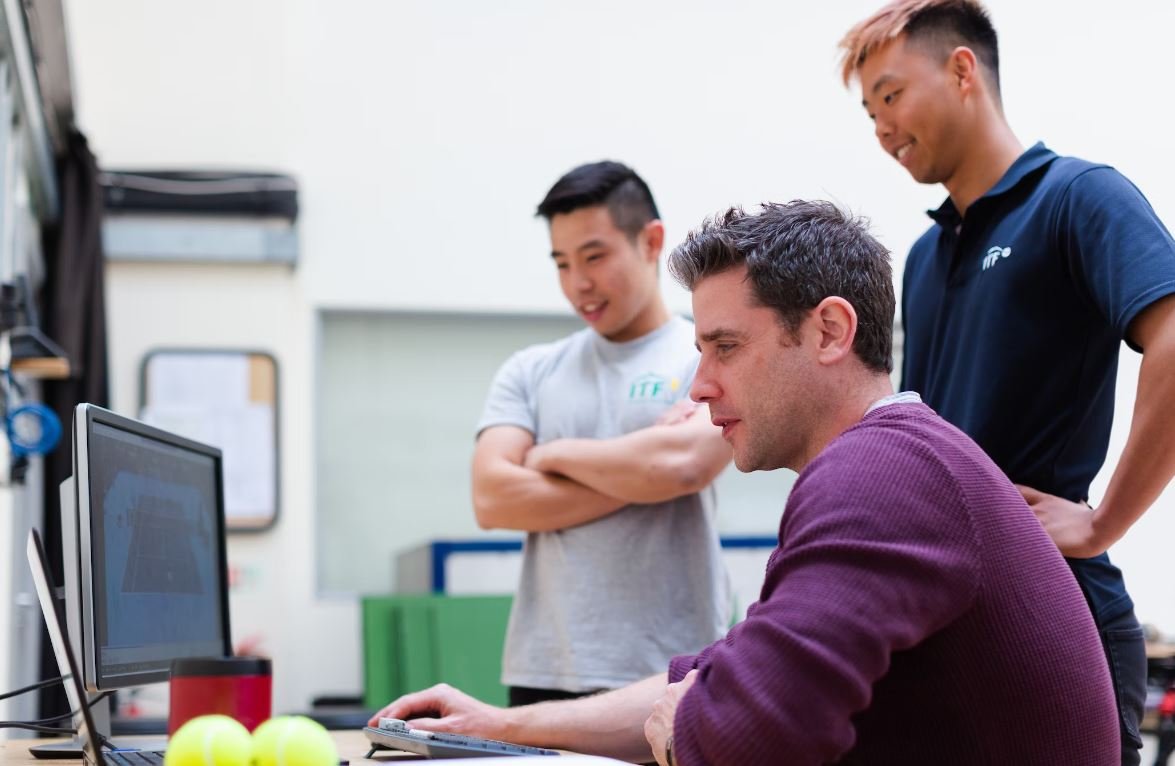AI for Good
The field of Artificial Intelligence (AI) has seen rapid advancements in recent years, playing a significant role in various sectors. AI technology has the potential to bring about positive change and make the world a better place. This article will explore the concept of AI for Good and provide insights into its applications and benefits.
Key Takeaways
- AI for Good aims to utilize artificial intelligence in a way that benefits humanity.
- Applications of AI for Good span across healthcare, environmental conservation, disaster response, and more.
- AI can help address social and economic inequalities, promote accessibility, and enhance decision-making processes.
Understanding AI for Good
AI for Good refers to the utilization of AI technologies and algorithms for the betterment of society and the planet. As AI continues to evolve, incorporating ethical considerations and ensuring responsible development becomes imperative. Organizations and researchers are actively exploring ways to leverage AI to address societal challenges and contribute to sustainable development.
*AI for Good presents a unique opportunity to tackle pressing social and environmental issues effectively.
Applications of AI for Good
The potential applications of AI for Good are vast and diverse. Some of the key areas where AI is making a positive impact include:
- Healthcare: AI assists in disease diagnosis, personalized treatment plans, and drug discovery.
- Environmental Conservation: AI aids in wildlife monitoring, deforestation analysis, and climate change modeling.
- Disaster Response: AI helps with early warning systems, post-disaster assessment, and resource allocation.
*AI applications expand across several domains, improving our ability to solve critical global challenges.
Benefits of AI for Good
Embracing AI for Good offers numerous benefits that promote human well-being and ensure a sustainable future:
- Addressing Social Inequalities: AI can help bridge the digital divide, provide educational opportunities, and enhance accessibility for marginalized communities.
- Economic Empowerment: AI-based solutions foster economic growth, promote entrepreneurship, and enable job creation.
- Enhanced Decision Making: AI algorithms can analyze vast amounts of data, providing valuable insights for informed decision-making in various sectors.
*The positive impact of AI extends beyond the technological realm, contributing to a more inclusive and equitable society.
AI for Good Initiatives
A number of organizations and initiatives are actively working on AI for Good projects:
| Organization | Focus Area |
|---|---|
| Google DeepMind | Healthcare |
| AI4ALL | Diversity and Inclusion in AI |
| Microsoft AI for Earth | Environmental Sustainability |
*Various institutions and groups are actively engaged in AI for Good initiatives, fostering collaboration and driving positive change.
The Future of AI for Good
As the field of AI continues to advance, the potential for AI for Good is limitless. By integrating AI technology with moral considerations and responsible practices, we can harness its power to create a more sustainable and equitable future for all.

Common Misconceptions
Misconception 1: AI will replace human jobs completely
One of the common misconceptions about AI is that it will completely replace human jobs, leading to mass unemployment. However, this is not entirely true. While AI may automate certain repetitive tasks, it is more likely to augment human capabilities rather than replacing them entirely.
- AI can enhance productivity and efficiency in various sectors, allowing humans to focus on more complex and creative tasks.
- AI can create new job opportunities in AI research, development, and maintenance.
- AI can also support job growth by enabling the emergence of new industries and business models.
Misconception 2: AI is biased and unethical
Another misconception surrounding AI is that it is inherently biased and unethical. While it is true that AI systems can inadvertently inherit biases from the data they are trained on, it does not mean that AI itself is biased or unethical.
- Developers and researchers can take proactive measures to identify and mitigate biases in AI algorithms.
- Ethical guidelines and regulations are being developed to ensure the responsible use of AI technology.
- AI can be leveraged for social good, such as identifying and addressing biases in healthcare or criminal justice systems.
Misconception 3: AI will become self-aware and take over the world
Thanks to science fiction movies, there is a common misconception that AI will become self-aware and pose a threat to humanity. This belief is not based on reality, as AI systems are created to perform specific tasks and lack the consciousness or intent to take over the world.
- AI operates within the boundaries set by its programmers and cannot deviate from its intended functions.
- AI systems are designed to prioritize safety and follow predetermined rules and regulations.
- Experts in AI development continuously work on building fail-safe mechanisms to prevent any unintended consequences or malicious use of AI.
Misconception 4: AI is a fancy term for machine learning
Many people confuse AI with machine learning, assuming that they are the same thing. While machine learning is a subset of AI, it is not the entirety of AI.
- AI encompasses a broader range of technologies and techniques, such as natural language processing, computer vision, and robotics.
- Machine learning is a specific approach within AI that focuses on training algorithms to learn from data and make predictions or decisions.
- Other AI techniques, like expert systems or rule-based systems, do not rely on machine learning and function differently.
Misconception 5: AI is only for big corporations or tech giants
Many people believe that AI is only accessible to big corporations or tech giants due to its complexity and cost. However, AI is becoming increasingly democratized and accessible to individuals and organizations of all sizes.
- Open-source AI frameworks and libraries, such as TensorFlow and PyTorch, have made it easier for developers to implement AI solutions.
- Cloud-based AI services offered by major tech companies allow small businesses to leverage AI without the need for extensive infrastructure or expertise.
- AI startups are emerging and democratizing access to AI by building user-friendly tools and platforms for various industries.

AI for Good: Improving Healthcare
In recent years, artificial intelligence (AI) has made significant advancements in the healthcare industry. From diagnosing diseases to assisting in surgeries, AI has revolutionized patient care. This table highlights the impact of AI in improving different aspects of healthcare.
| AI Application | Impact |
|---|---|
| Medical Imaging Analysis | Increased accuracy in detecting abnormalities, saving lives |
| Drug Discovery | Accelerated development of new medications, improving treatment options |
| Virtual Assistants | Enhanced patient care and reduced administrative workload |
| Robotic Surgery | Precise and minimally invasive procedures, faster recovery times |
| Health Monitoring Apps | Accessible, personalized health data leading to proactive care |
AI for Good: Ensuring Fairness in Justice
The use of AI in the justice system has raised concerns about fairness and bias. However, when ethically implemented, AI can contribute to a more just society. This table presents examples where AI is being leveraged to ensure fairness and equality in justice.
| AI Application | Impact |
|---|---|
| Recidivism Prediction | Fairer assessment of an individual’s likelihood of reoffending |
| Legal Research | Efficient analysis of vast legal databases, reducing human error |
| Document Analysis | Speeding up the review process, reducing backlog in courts |
| Sentencing Guidelines | Providing judges with consistent, evidence-based recommendations |
| Translation Services | Enabling access to legal information for non-native speakers |
AI for Good: Protecting the Environment
The environment faces numerous challenges, and AI is emerging as a powerful tool to mitigate them. This table showcases how AI technologies are being used to protect and conserve our planet.
| AI Application | Impact |
|---|---|
| Climate Modeling | Improved accuracy in predicting climate change effects |
| Wildlife Conservation | Efficient population monitoring and anti-poaching efforts |
| Smart Energy Management | Optimizing energy consumption, reducing carbon footprint |
| Water Resource Management | Predicting and preventing water pollution, ensuring clean supplies |
| Agricultural Optimization | Optimizing crop yields while minimizing resource usage |
AI for Good: Enhancing Education
Education plays a vital role in shaping the future, and AI is transforming the way we learn. This table presents examples of how AI is enhancing education through personalized and interactive experiences.
| AI Application | Impact |
|---|---|
| Adaptive Learning Systems | Customized educational content based on individual student needs |
| Tutoring Bots | 24/7 access to guidance and support, improving learning outcomes |
| Automated Grading | Efficient evaluation of assignments, providing timely feedback |
| Language Learning Apps | Interactive platforms aiding language acquisition and fluency |
| Virtual Reality Education | Immersive learning experiences, enhanced understanding |
AI for Good: Revolutionizing Transportation
The transportation sector is undergoing a significant transformation with the help of AI. This table highlights how AI is revolutionizing various aspects of transportation to create safer and more efficient systems.
| AI Application | Impact |
|---|---|
| Autonomous Vehicles | Potential to eliminate human error and reduce accidents |
| Traffic Management | Optimizing traffic flow, reducing congestion and commute times |
| Ride-Sharing Optimization | Efficient matching of drivers and passengers, reducing emissions |
| Public Transportation Planning | Improved routes and schedules, enhancing accessibility |
| Drone Delivery | Fast and reliable delivery services, reducing traffic congestion |
AI for Good: Boosting Cybersecurity
As technology advances, so do the challenges in cybersecurity. AI, however, offers innovative solutions to combat cyber threats. This table showcases various AI applications in bolstering cybersecurity.
| AI Application | Impact |
|---|---|
| Anomaly Detection | Identifying and preventing unusual patterns, enhancing threat detection |
| Behavioral Biometrics | Advanced user authentication, minimizing identity theft risks |
| Automated Security Patches | Swift identification and installation of necessary updates |
| Malware Analysis | Rapid identification and mitigation of malware threats |
| Cyberattack Response | Efficient incident response, minimizing damage and downtime |
AI for Good: Empowering Individuals with Disabilities
AI technologies offer tremendous potential for individuals with disabilities, enabling greater independence and inclusion. This table highlights AI applications that empower people with disabilities.
| AI Application | Impact |
|---|---|
| Assistive Robotics | Enhanced mobility, assistance with daily tasks |
| Speech Recognition | Support for communication, enabling voice-controlled devices |
| Smart Prosthetics | More natural movements, improved functionality |
| Eye-Tracking Devices | Control of digital interfaces, facilitating computer usage |
| Accessible Design | AI-driven adaptability, ensuring inclusivity in user interfaces |
AI for Good: Revolutionizing Customer Service
Customer service has witnessed dramatic improvements with the integration of AI technologies. This table presents examples showing how AI is revolutionizing customer experiences and support.
| AI Application | Impact |
|---|---|
| Chatbots | Instant assistance, round-the-clock support |
| Personalized Recommendations | Customized product suggestions, improving customer satisfaction |
| Voice Assistants | Enhanced natural language processing, faster query resolution |
| Virtual Shopping Assistants | Providing personalized guidance during online shopping |
| Sentiment Analysis | Understanding customer feedback, addressing concerns promptly |
AI for Good: Improving Mental Health
Mental health is a critical area where AI is making a positive impact. This table showcases how AI is being utilized to enhance mental healthcare and support.
| AI Application | Impact |
|---|---|
| Mood Detection | Early detection of signs of depression and anxiety |
| Chatbot Therapists | Accessible mental health support, reducing stigma |
| Therapeutic VR | Immersive experiences for exposure therapy and relaxation |
| Emotion Tracking Apps | Monitoring emotional patterns, facilitating self-management |
| AI-Powered Digital Therapies | Personalized treatment plans and interventions |
In conclusion, AI brings tremendous potential for positive change in various fields, as demonstrated by the above tables. By leveraging AI for good, we can revolutionize healthcare, justice, the environment, education, transportation, cybersecurity, disability empowerment, customer service, and mental health. With careful implementation and ethical considerations, AI can truly make the world a better place.
Frequently Asked Questions
What is AI for Good?
AI for Good refers to the application of artificial intelligence technologies for addressing global challenges and making a positive impact on society. It encompasses the development and use of AI-powered solutions to solve various social, environmental, and humanitarian issues.
How does AI contribute to social good?
AI can contribute to social good by providing advanced tools and systems that help researchers, policymakers, and organizations tackle complex problems. It can assist in areas such as healthcare, education, poverty alleviation, environmental conservation, disaster management, and more.
What are some examples of AI for Good projects?
Examples of AI for Good projects include using machine learning algorithms to detect and prevent diseases, developing AI-driven education platforms to enhance learning outcomes, employing AI in disaster response to aid in relief efforts, utilizing computer vision for wildlife conservation, and creating AI-powered accessibility solutions for people with disabilities.
How can AI help in healthcare?
AI can help in healthcare by analyzing large amounts of medical data for faster and more accurate diagnoses, assisting in drug discovery and development processes, improving patient monitoring systems, and empowering personalized medicine. It also enables telemedicine services and supports the overall efficiency and quality of healthcare delivery.
Are there any ethical concerns regarding AI for Good?
Yes, there are ethical concerns surrounding AI for Good. These include issues of privacy, fairness, transparency, accountability, and the potential for unintended consequences. It is crucial to ensure that AI technologies are developed and deployed in a responsible and ethical manner, taking into consideration the potential impact on different stakeholders.
How can individuals get involved in AI for Good initiatives?
Individuals interested in AI for Good initiatives can get involved through various means. They can contribute by participating in open-source AI projects, volunteering with organizations working on AI for Good, advocating for responsible AI practices, and staying informed about the latest developments and discussions in the field.
What are the challenges in implementing AI for Good projects?
Challenges in implementing AI for Good projects include access to reliable data, ensuring algorithmic fairness, addressing biases, securing necessary funding, navigating regulatory frameworks, and fostering collaboration between AI practitioners, domain experts, and policymakers. Overcoming these challenges requires interdisciplinary approaches and continuous learning.
How can AI be used for environmental conservation?
AI can be used for environmental conservation purposes in various ways. It can assist in analyzing satellite imagery for monitoring deforestation, predicting biodiversity hotspots, managing wildlife populations, and detecting environmental pollution. AI-powered systems can also aid in optimizing energy consumption and reducing carbon footprints in industries and infrastructure.
What organizations are involved in AI for Good initiatives?
Several organizations are involved in AI for Good initiatives, including the United Nations (UN), various non-governmental organizations (NGOs), research institutions, and tech companies. Examples include the AI for Good Global Summit, AI for Good Foundation, Partnership on AI, and initiatives undertaken by companies like Google, Microsoft, and IBM.




